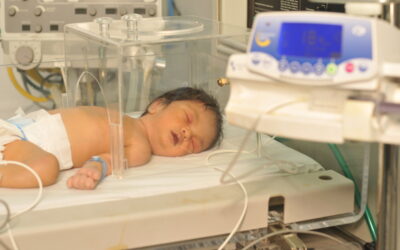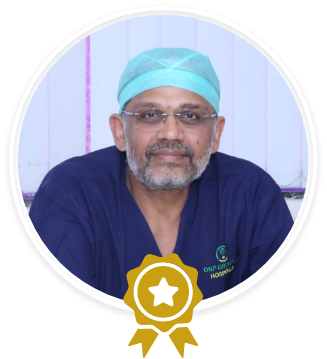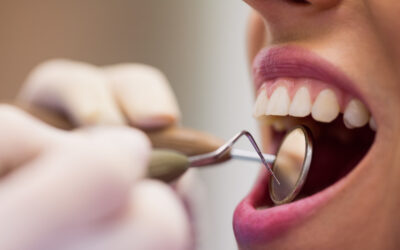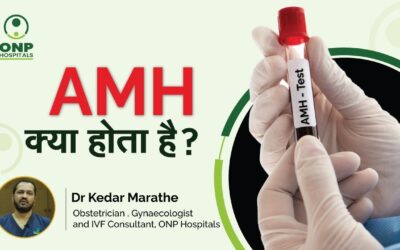Introduction Welcome to ONP Hospital, where the future of neonatal care unfolds within our state-of-the-artNeonatal Intensive Care Unit (NICU). Our commitment to delivering the highest standard of carefor our tiniest patients is evident in the cutting-edge technology,...
All You Need to Know About Reproduction

Normally a menstrual cycle lasts from 28 to 30 days. The beginning of a cycle is when the bleeding starts. In a regular cycle, an egg (ovum) starts growing and ovulates, or the follicle ruptures, by mid-cycle, which is approximately around the 14th day. If intercourse/ sexual contact occurs at this time, sperm travels through the uterus and tubes and fertilizes the ovum, resulting in formation of a baby (embryo).
This embryo then travels back to the uterine cavity and gets implanted in the endometrium. If the ovum is not fertilized it leaves the uterine cavity and the endometrium is shed after 14 days – resulting in periods. For a successful conception and pregnancy, the following needs to be in good condition: The release of a healthy ovum, healthy tubes, normal sperm count with good motility, sperm which can penetrate the cervical mucus, endometrium which is capable of implanting the embryo, and finally, a normal uterine cavity for the proper growth of the baby.
A defect in any of these aspects can lead to difficulty in conception. The definition of infertility is an inability of a couple to conceive after one year of regular unprotected intercourse. Generally, investigations and treatment of a couple should start if they are unable to conceive after a year of trying, but there are exceptions. For example, a doctor can suggest that a couple start investigations if the woman is more than 35 years old, has a very irregular menstrual cycle. Other obvious causes to initiate investigations include either person suffering from a major illness or the inability to have intercourse.
One of the commonest misconceptions about conception is that it can occur after having intercourse around 2-3 days before and after a woman’s periods. This is not true, as ovulation occurs somewhere in mid-cycle (around the 14th day in a 28-day cycle). Hence couples who desire to conceive should have unprotected intercourse on alternate days from day 10 to day 18 of a regular 28-30 days cycle.
This is called the “unsafe” period. Days other than these are “safe” for couples who want to avoid pregnancy. This “safe method” is used by many couples as a natural method of contraception, but failure rates are high and accidental/unwanted pregnancies often result. For a couple who are unable to conceive, it seems very unfair to see couples with unwanted pregnancies who want to terminate the pregnancy. However, there is good news for such couples. The advancement of science has made it possible to successfully treat the most complicated cases of infertility. Of course science still hasn’t found a way to transfer an already conceived, unwanted pregnancy to the uterus of an infertile lady!!!
About Author
More Blogs
Transformative Care: Navigating the State-of-the-Art NICU Facility at ONP Hospital
Introduction Welcome to ONP Hospital, where the...
Plant-Powered Health: Exploring the Benefits of a Vegetarian Diet
Introduction The debate between vegetarian and...
Battling Oral Cancer and Tobacco: Understanding Treatments, Diagnosis & Prevention
Introduction Oral cancer, a type of head and...
More Videos
Dr. Amita Phadnis’s Full Speech on Survival & Health Rights at UNICEF India.
Dr. Amita Phadnis ,M.D., Gave a Motivating Speech
Breast cancer is cancer that forms in breast cells. Women are mostly diagnosed with this cancer. Although it can be seen in both men and women
What is AMH
The granulosa cells in your ovarian follicles create the anti-Mullerian hormone, often known as AMH. According to the American College of Obstetricians and Gynecologists (ACOG), the generation of AMH is a reflection of your ovarian reserve.
FAQ’S
Pregnancy and Migraine Headaches: What Women Need to Know
When you are pregnant or breastfeeding, then...
What Is the Problem of Orthopedics in Children?
While orthopaedic problems are commonly seen in and associated with the elderly, it’s important to be alert regarding the fact that they can afflict young people and children as well.
Why attend Antenatal classes?
Antenatal classes are comprehensive, hands-on lessons to help you prepare for labour, birth and early parenthood. These classes often include components that focus on late pregnancy and breastfeeding.



 Home
Home Question
Question


